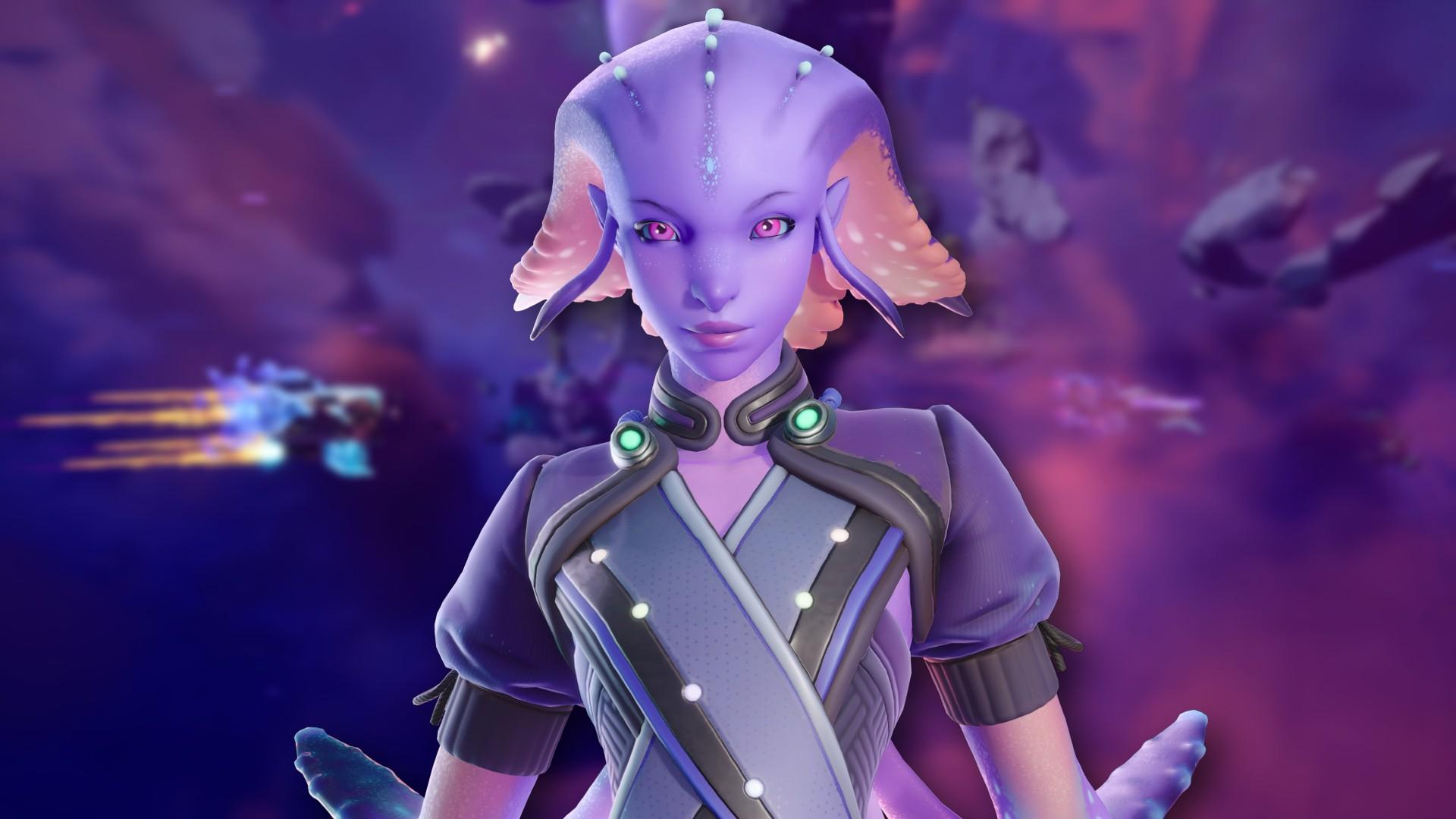-
Feed de notícias
- EXPLORAR
-
Páginas
-
Blogs
-
Fóruns
Former Starcraft 2 devs' new space FPS is happy to take risks because "there's never been a game quite like" it before

Former Starcraft 2 devs' new space FPS is happy to take risks because "there's never been a game quite like" it before
Dustin Browder and Jason Chayes have worked on some of the greatest videogames ever made. Browder was director on Heroes of the Storm, and lead gameplay designer for Starcraft 2. Chayes worked on Hearthstone, then served as lead producer on Starcraft 2, joining Browder on Ares, a canceled FPS set in the Starcraft universe. Between them, they've kickstarted Moonshot Games, part of ex-Blizzard CEO Mike Morhaime's Dreamhaven, and they've launched their first game, Wildgate, which we've since decided is best described as "purple."
If you're unfamiliar with Wildgate, it's a chaotic mashup of extraction shooters, ship management, and some of the best space games that, on paper, feels like it shouldn't work. Having finally played it during our recent Discord AMA, however, it somehow manages to unite all of its disparate parts into a cohesive FPS game that I've since found myself returning to.
But, given that there are so many moving parts, how does the team go about balancing things, especially when, to quote Browder, there's no Wildgate "template" to follow? As we blast aliens (and occasionally our pals) to celebrate the game's new Emergence update, I put the question to the duo.

"We were inspired by a lot of things," Chayes says. "There are games out there where you're playing on a crew - a lot of the team played Sea of Thieves, which was a big influence. There's a lot of joy around the process of upgrading your ship, and we looked at a lot of different sci-fi games and movies that we loved.
"And then there's obviously a big focus on the competitive play that we started with," he continues. "We looked at games that were out there like battle royales and leaned into that."
Making it all work together is where the magic happens, with Browder noting that "we want to have a highly variable game, and some randomness does produce a lot of variability which is wonderful, but at the same time, good game balance benefits all players. If the game is well-tuned, you'll feel it.
"We are willing to take some risks with this game in terms of randomness; The Reach can be a little bit cruel, The Reach can be a little bit helpful, sometimes The Reach is more helpful to your enemies and less helpful to you. We're okay with that, but we want your choices to feel good."

But, as Browder says, "there's never been a game quite like Wildgate," so a lot of development is trial and error, with feedback from the community at its core.
"When I was working on Starcraft 2, we could lean on Starcraft 1 enormously - like that game is better balanced on day one than it has a right to be because we're leaning on Starcraft 1. When we were working on Heroes of the Storm, we're obviously looking at Dota [2] and League [of Legends] and leaning on things we've seen work and not work in those games. With Wildgate, I'm not aware of a template.
"Everything here is new," he continues. "A lot of what we learn in balance is hopefully some decent first guesses. But then, after that, we've got to play with the community and see what works and doesn't work, and try and keep up as best we can."

Having played Wildgate for the first time during our AMA, it was a trial by fire, but in a positive way. Looting, shooting, fixing, and piloting is no easy feat - especially when you're rushing to find the Artifact and jostling with enemy ships. While I was slightly worried that it was doing too much, it's not overwhelming and the core gameplay loop is incredibly satisfying, even if it's a little stress-inducing.
As the game transitions from purple to orange to green (?), I'm excited to see what happens next. If you're intrigued by Wildgate, it's currently half-price on Steam ($14.99 / £12.49) until Thursday December 4. You can pick it up here to check out The Reach for yourself.


